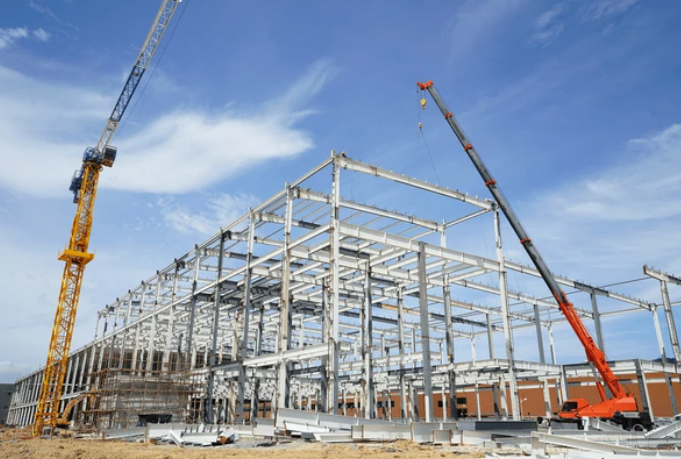How Structural Engineering Impacts Project Success

In the realm of construction and design, structural engineering plays a pivotal role in ensuring the safety, functionality, and durability of buildings and infrastructure. The work of a structural engineer is critical, as they are responsible for designing and analyzing structures that can withstand various loads and environmental conditions. Understanding how structural engineering influences project success can help stakeholders make informed decisions that lead to efficient and effective outcomes.
The Foundation of Project Success
Every construction project begins with a solid foundation, both literally and figuratively. A structural engineer is instrumental in this phase, providing the expertise needed to assess soil conditions, load requirements, and the overall feasibility of a project. By collaborating with architects and other professionals, structural engineering firms ensure that the design aligns with safety standards and local regulations.
The early involvement of structural engineering companies can significantly reduce the risk of costly changes during the later stages of a project. By conducting thorough analyses and simulations, structural engineers can identify potential issues before construction begins, leading to smoother execution and fewer delays.
Designing for Safety and Compliance
Safety is paramount in construction. The role of a structural engineer extends beyond design; it involves ensuring that every structure adheres to relevant codes and regulations. Structural engineers must stay updated on industry standards and building codes, which can vary by location and project type. Their expertise in safety regulations protects the integrity of the building and the lives of its occupants.
Structural engineering services include rigorous testing and validation of materials and designs, which further enhances safety. For instance, when designing a high-rise building, a structural engineer will consider wind loads, seismic activity, and other environmental factors. This level of scrutiny ensures that structures can endure both everyday stresses and unexpected events, ultimately leading to project success.
Cost Efficiency and Resource Management
Another critical aspect of structural engineering is its impact on project cost efficiency. By engaging structural engineering companies early in the project, stakeholders can optimize resource allocation. Structural engineers employ various techniques to minimize material waste and enhance the efficiency of construction processes.
For example, advanced software and modeling tools allow structural engineers to create precise designs that use materials more effectively. This not only reduces costs but also contributes to sustainability efforts. In a world increasingly focused on environmental responsibility, using fewer resources while maintaining structural integrity can be a significant advantage.
Collaboration and Communication
Successful projects rely heavily on effective collaboration among all stakeholders. The structural engineer often acts as a bridge between different teams, including architects, contractors, and clients. Clear communication ensures that everyone is aligned with the project goals and requirements.
Structural engineering companies often provide comprehensive services that include project management, making it easier to coordinate efforts and address any challenges that arise. By fostering a collaborative environment, structural engineers help create a more cohesive project team, which is essential for navigating complexities and achieving project milestones.
Innovative Solutions and Technology Integration
The field of structural engineering is continually evolving, with new technologies and methodologies emerging regularly. From Building Information Modeling (BIM) to advanced materials science, structural engineering services are becoming more sophisticated. These innovations allow structural engineers to devise creative solutions that enhance project efficiency and effectiveness.
For example, the use of BIM enables structural engineers to create detailed 3D models that incorporate various aspects of a project. This visualization aids in identifying potential conflicts early, facilitating better planning and coordination. As a result, projects can move forward with greater confidence, reducing the likelihood of delays and costly modifications.
Meeting Client Expectations
In today’s competitive market, meeting and exceeding client expectations is crucial for project success. A knowledgeable structural engineer plays a significant role in this process by providing insights and solutions that align with client goals. Whether it’s adhering to budget constraints, meeting deadlines, or ensuring the highest safety standards, structural engineers are instrumental in translating client visions into reality.
By delivering high-quality structural designs that consider aesthetics, functionality, and sustainability, structural engineering companies can help clients achieve their desired outcomes. This commitment to excellence fosters trust and long-term relationships, which are essential for business growth in the construction industry.
Adapting to Challenges
Construction projects often face unforeseen challenges, whether due to weather conditions, material shortages, or changes in project scope. A skilled structural engineer is equipped to adapt to these challenges swiftly. Their analytical skills and problem-solving abilities allow them to devise alternative solutions that keep projects on track.
By proactively addressing issues as they arise, structural engineers help minimize disruptions and maintain project momentum. This adaptability is crucial for ensuring that projects meet deadlines and stay within budget, ultimately contributing to overall success.
Conclusion
In summary, the impact of structural engineering on project success cannot be overstated. From ensuring safety and compliance to optimizing costs and fostering collaboration, the role of a structural engineer is essential at every stage of a project. Engaging with reputable structural engineering companies and utilizing their structural engineering services can significantly enhance the likelihood of achieving project goals.
As the construction industry continues to evolve, the importance of skilled structural engineers will only grow. Their expertise not only helps create safe and durable structures but also drives innovation and efficiency in the field. For stakeholders seeking successful project outcomes, investing in quality structural engineering is a decision that pays dividends in the long run.
Read More:- Transform Designs with Structural 3D BIM Modeling Services







